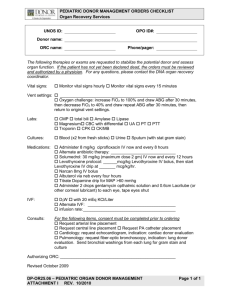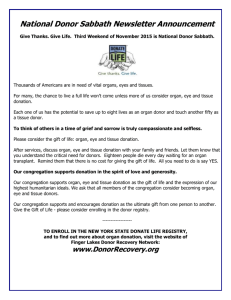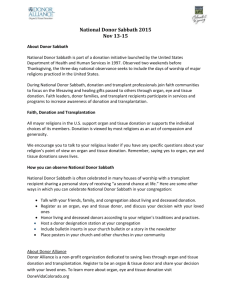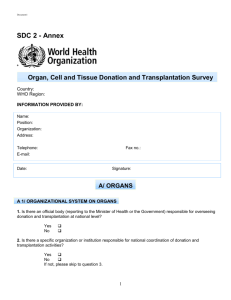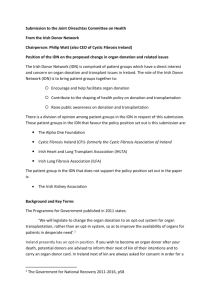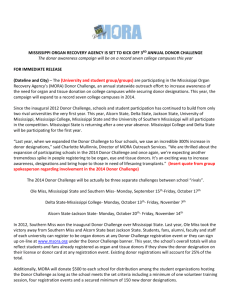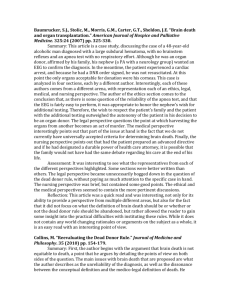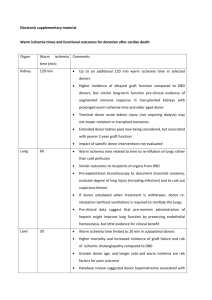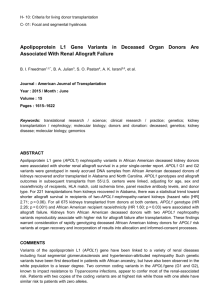Communicating with Care and Respect
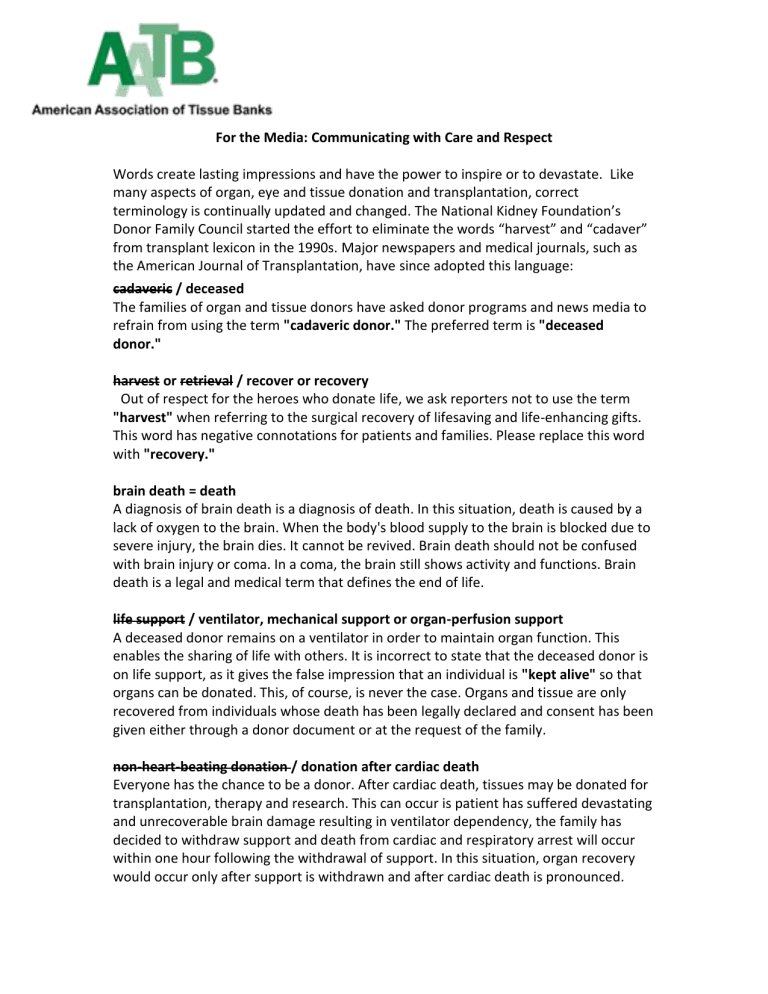
For the Media: Communicating with Care and Respect
Words create lasting impressions and have the power to inspire or to devastate. Like many aspects of organ, eye and tissue donation and transplantation, correct terminology is continually updated and changed. The National Kidney Foundation’s
Donor Family Council started the effort to eliminate the words “harvest” and “cadaver” from transplant lexicon in the 1990s. Major newspapers and medical journals, such as the American Journal of Transplantation, have since adopted this language: cadaveric / deceased
The families of organ and tissue donors have asked donor programs and news media to refrain from using the term "cadaveric donor." The preferred term is "deceased donor."
harvest or retrieval / recover or recovery
Out of respect for the heroes who donate life, we ask reporters not to use the term
"harvest" when referring to the surgical recovery of lifesaving and life-enhancing gifts.
This word has negative connotations for patients and families. Please replace this word with "recovery." brain death = death
A diagnosis of brain death is a diagnosis of death. In this situation, death is caused by a lack of oxygen to the brain. When the body's blood supply to the brain is blocked due to severe injury, the brain dies. It cannot be revived. Brain death should not be confused with brain injury or coma. In a coma, the brain still shows activity and functions. Brain death is a legal and medical term that defines the end of life.
life support / ventilator, mechanical support or organ-perfusion support
A deceased donor remains on a ventilator in order to maintain organ function. This enables the sharing of life with others. It is incorrect to state that the deceased donor is on life support, as it gives the false impression that an individual is "kept alive" so that organs can be donated. This, of course, is never the case. Organs and tissue are only recovered from individuals whose death has been legally declared and consent has been given either through a donor document or at the request of the family. non-heart-beating donation / donation after cardiac death
Everyone has the chance to be a donor. After cardiac death, tissues may be donated for transplantation, therapy and research. This can occur is patient has suffered devastating and unrecoverable brain damage resulting in ventilator dependency, the family has decided to withdraw support and death from cardiac and respiratory arrest will occur within one hour following the withdrawal of support. In this situation, organ recovery would occur only after support is withdrawn and after cardiac death is pronounced.
